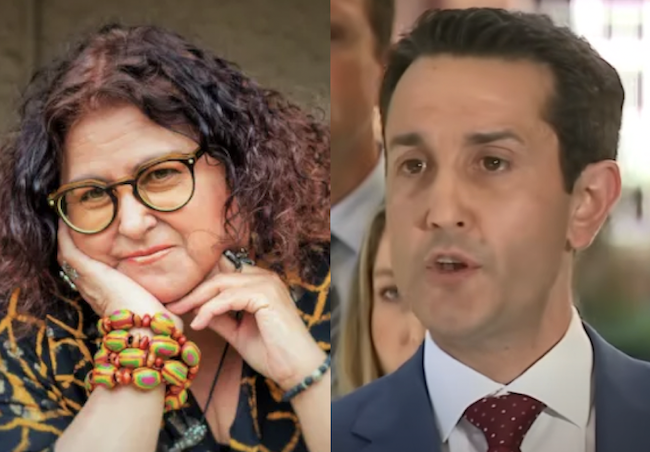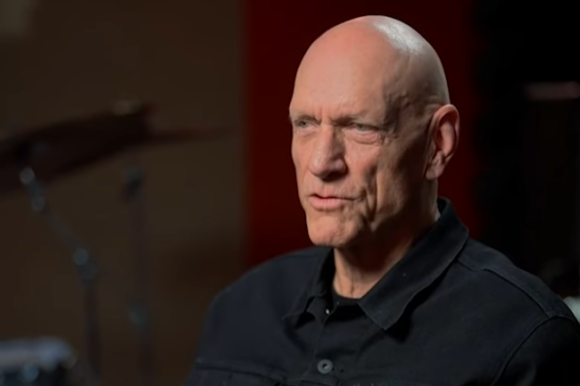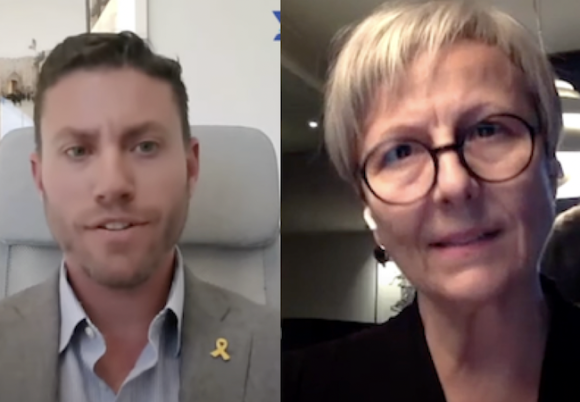Author Karen Wyld's black&write award was revoked after QLD Premier David Crisafulli wrote to the State Library about her social media posts on Gaza. Rosemary Sorensen reports.
THE NEWS first broke on Bluesky: another notch in the vigilantist The Australian newspaper’s campaign against artists and writers.
A journalist knew that Karen Wyld’s black&write! award had been pulled even before the writer herself had been informed. And this time, in scenes that must have delighted the posse shouting “It’ll teach her a lesson”, Wyld was literally on her way to the celebratory announcement that she was the recipient of the State Library of Queensland’s Award when told she’d been shafted.
The following day, The Guardian had the story, including the noxious statement released by SLQ about “rescheduling” and an “independent review” — a horrible reminder that this was the way the State Library of Victoria responded when outed on X for their last-minute sacking of anti-genocide writers, early last year.
Karen Wyld revealed to Guardian journalist Kelly Burke that she had received an email from The Australian as she arrived at the event, asking for comment about losing the fellowship. Then, she found herself 'ushered into a private room' where SLQ chief executive, Vicki McDonald, told her the award contract was cancelled.
According to Wyld, when she tried to explain to McDonald that this would increase public concern about creative freedom (that’s a paraphrase):
'McDonald said it had been decided that was a risk worth taking.'
Who cares about what the public thinks? It’s governments, and the lobbyists in media and business who must be appeased (couched in terms such as those used by Queensland Premier Crisafulli that taxpayers didn’t want their money funding such artists).
Humiliating the writer, cancelling with no notice, infuriating and horrifying all the previous recipients of the black&write! fellowship, alienating those who have spoken out, sometimes with incautious anger, at the Albanese Government’s support for Israel’s continuing offensive — yeah, nah. A risk worth taking
On the other hand, standing up and speaking out, doing the right and ethical thing — way too risky, apparently. Just issue a mealy-mouthed say-nothing statement about independent reviews to hush up the scandal and it’ll blow over. That’s the way it’s done.
Adrian Collette at Creative Australia weathered the storm over the successful campaign to dump Khaled Sabsasi as the Australian artist at the Venice Biennale. Although the announcement that chairman Robert Morgan has resigned and Sabsasi reinstated, as part of the exhibition just opened at Monash Art Gallery, says the Biennale is still a possibility.
State Library of Victoria CEO Paul Duldig dug in, with a bluntly unconvincing series of responses in the wake of the writers’ sacking scandal, and it appears that ugly series of revelations and the ensuing review process has been all but forgotten — except, you’d imagine, by the writers humiliated by the whole sorry saga.
How about the shocking decision by Melbourne Symphony Orchestra (MSO) to cancel a performance by pianist Jayson Gillham in response to his mentioning, in relation to the music he was about to play – the killing of journalists in Gaza? A CEO gone, a review announced, then postponed (on hold because the Gillham matter is now a legal case), board changes. And yet, the announcement of Edgar Myer as MSO chair back in February hardly even gestured towards the fact the organisation is fighting in court to deny Gillham’s right to free speech as a performer; and no update on “governance matters” has appeared since November last year.
If no one asks, no need to mention all that messy stuff. On with the show — plenty of other performers, nice ones, approved ones, who won’t mention the war, who will step onto the stage, carefully avoiding the bloodstain on the stairs. If only every arts prize, or festival, or organisation were so well-schooled in the patient skill of managerial subservience.
Last week, Michelle de Kretser won the Stella Prize for her book, Theory & Practice. Interviews done before the official announcement stuck pretty much to questions about the book, but because the Stella award event took place during the Sydney Writers Festival, the Sydney Morning Herald was there to hear the winner’s speech.
Journalist Kerrie O’Brien reported the next day that de Kretser had acknowledged her own fear in speaking out, but had decided that the truth needed to be spoken. The kind of censorship seen a few days prior, the punishment-as-warning meted out to Karen Wyld, has, said de Kretser, consequences not just for writers, but for democracy:
“In Australia today it isn’t those applauding mass murder who have cause to be afraid, but those speaking out against it. Principally targeted are Palestinians, Arabs, Muslims, First Nations people, people of colour, queers.”
O’Brien didn’t tell us in the article what the audience response was to de Kretser’s speech, but when the writer admitted she heard the voice in her head warning her that she would be “punished”, her conclusion must surely have been welcomed:
“I’m still afraid. But I’ve just accepted a prize that is not about obedience. It’s not about feel-good narratives, it’s not about marketing, it’s not even about creativity — Stella is about changing the world.”
Make no mistake: this is precisely why artists of all kinds are being relentlessly pursued by the establishment, a coalition of power-hungry vigilantes hell-bent on squashing to oblivion those whose creative talents threaten to change the world. Finding allies in the racist cults barracking for genocide, these people and groups are picking off their perceived enemies, one by one.
As Jo Caust, associate professor in culture and communication at the University of Melbourne, writes in The Conversation, there are any number of self-appointed culture-defenders ready to say the most shockingly unliberal things, in that self-appointed bastion of punitive conservatism, The Australian. Visual arts editor at The Australian, Christopher Allen, made the extraordinary comment, Caust writes, that 'anyone with any judgement would have avoided choosing an artist connected with the nations involved in the conflict', referring, as she notes, to Sabsasi’s Lebanese nationality.
Then, not content with that call for blatant bias, another willing participant in this disgusting return to elitist control of culture, Australian journalist Steve Waterson took the inevitable next step backwards to ask, 'why people whose talent (if it exists at all) is insufficient to support them should expect to have their fantasies indulged by the taxpayer'.
Caust, like de Kretser, warned that these attacks on both freedom of speech and diversity are “undemocratic”, reducing the number of people who can participate to those sanctioned by criteria overseen by those with the money and therefore power to influence everything, including culture.
Karen Wyld was understandably bewildered by being punished for a tweet that had nothing to do with her book on the Stolen Generations. Jayson Gillham saw immediately what was at stake, beyond the damage to him personally, when he was punished for explaining the motivation behind a piece of music. Khaled Sabsasi speaks for all artists when he refuses to be misrepresented and punished on account of his ethnicity.
And Michelle de Kretser, thanking the women who saw the need for a prize specifically for women writers and thinking of the women slaughtered in Gaza, said she was ready for the backlash but firm in her resolve to state the truth:
“We’ve seen our institutions and our media betray the principles they’re supposed to uphold.”
And yet the Queensland Government this week waded deep into the ideological mire when the Premier, Crisafulli, and the Arts Minister, John-Paul Langbroek, reportedly wrote to the State Library voicing concerns about social media comments made by Indigenous author Karen Wyld.
Rosemary Sorensen is an IA columnist, journalist and founder of the Bendigo Writers Festival.
EDITOR'S NOTE
This article was originally published under a different headline. Independent Australia recognises the earlier headline was inadvertently misleading and unreservedly apologises for any hurt caused.
 This work is licensed under a Creative Commons Attribution-NonCommercial-NoDerivs 3.0 Australia License
This work is licensed under a Creative Commons Attribution-NonCommercial-NoDerivs 3.0 Australia License
Support independent journalism Subscribe to IA.

Related Articles
- Denying hungry kids and women’s rights with David Crisafulli et al
- EDITORIAL: Denying hungry kids and women’s rights with David Crisafulli et al














